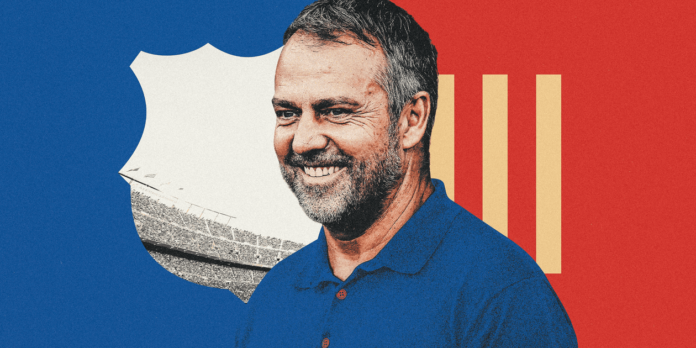La bestia negra (The black beast, or the bete noire). This is how Barcelona media describe the influence Bayern Munich have had on them ahead of their Champions League clash, a European classic that, in general, has given the Catalans nightmares.
Out of the 15 duels between the two clubs in the last 30 years, Bayern have won 11 and Barcelona only two. The German side have won the last six consecutive games, but the first that comes to mind for Catalan fans is that quarter-final game in 2020.
Bayern destroyed Barca 8-2. But there’s always a silver lining, and that defeat could be labeled as the genesis of Barcelona’s excellent start to this season.
Hansi Flick was the Bayern manager the night Bayern tore the last hopes of the Lionel Messi era to pieces. The Germans won the Champions League and every other trophy they contested that season — and Flick fell straight on to Joan Laporta’s radar.
A year later, president Josep Maria Bartomeu resigned and a new election was called. During the campaign, after doubts over the position of Ronald Koeman as Barcelona manager, Laporta and his team held off-the-record chats with the media. As much as the current president said he didn’t plan to instantly change manager, he admitted he had become a big admirer of the upcoming generation of German managers.
Flick with Thiago helping Jordi Alba to his feet during Bayern’s 8-2 win (Manu Fernandez/Pool via Getty Images)
The names mentioned were Julian Nagelsmann, who had just got the Bayern job and whose precocious success left Laporta impressed; Tomas Tuchel was another, after winning the Champions League with Chelsea; and finally there was Flick after the Barcelona demolition.
That played a huge role in the president’s decision to hire Flick last summer. Some executives preferred second-team manager Rafa Marquez, but Laporta insisted on the German.
It was impossible to envisage the impact Flick would have in such a short time. He has galvanised an underachieving squad, with only one major signing in Dani Olmo. His serene and honest leadership has revitalised the mood among fans. His team excites the crowd and they are currently on top form: at the top of La Liga, three points ahead of reigning champions Real Madrid, with 33 goals scored in 10 games.
Destiny wanted Flick to face their former club on the biggest stage — with both teams needing three points after losing one of their first two Champions League games. As much as it’s tough for Barca fans to feel confident when they play Bayern, their new manager has given them hope. It is a weird feeling that the man who once subjected them to Champions League trauma is here to heal the wounds.
This is the story of everything Hansi Flick has done since taking over his new role, including his detachment from the toxic entorno, a secret reconciliation with Xavi and a punishment Jules Kounde, and the rest of the squad, will not forget.
Flick and the entorno: the less you know the better?
Last week, while players were still on international duty, Hansi Flick believed it was time to reconnect with an old contact with whom his relationship risked turning sour.
Flick texted former Barcelona manager Xavi Hernandez and proposed a catch-up. The German’s predecessor as Barcelona manager invited him to his house last Thursday, with the pair living quite close to each other, in the Pedralbes district of Barcelona. After the meeting Xavi posted a picture with his kids and the current Barca manager on social media, wishing Flick all the best for the season.
This might sound strange given there was no connection in their backgrounds, but Flick and Xavi did have a relationship. They met each other while the former was Germany manager, and the latter was about to start his coaching career. Xavi and Flick exchanged messages and were in contact for years, but last May, when Xavi was on the verge of being sacked by Barca, things got complicated.
Deco and Bojan, the club’s sporting directors, travelled to London to meet Flick for the first time. Their trip was reported in the local media and, while Xavi was getting no response from the club regarding his future, he decided to text Flick himself to ask him if the meeting with Barca executives was true.
At that moment, for the sake of future relationships, Flick replied by saying he was not in negotiations to become Barcelona manager.
Now, settled in the club and established as the face of the new Barca, Flick wanted to make sure his white lie did not create resentment with the Catalan. The meeting in Xavi’s house went extremely well, according to sources close to both sides, who, like others in this article, wish to remain anonymous to protect relationships. The chat sent a peaceful message to the world of Barcelona, which is used to toxicity and bitterness.
The normality in which Flick has dealt with every challenge has been a huge breath of fresh air. He’s been a calm leader who has opted to solve any situation by being honest and straightforward.
Club sources highlight Ilkay Gundogan’s departure and the private conversation he had with Flick, who admitted he could not guarantee the 33-year-old a starring role in his plans, as an example. But it is his lack of conscious awareness of how Barcelona narratives work behind the scenes that, according to those same sources, has allowed Flick to fit like a glove.
Xavi was so aware of Barcelona’s inner workings that it took a toll. He became obsessed with the media, reading and listening to every club briefing or piece of gossip, that some at the club described the situation as if the 44-year-old had “lost his head and sanity in it”.
Flick is the opposite. He does not speak Catalan or Spanish, and his press conferences are conducted in English or German. He is not in that much of a position to believe malicious intentions behind any of the questions he receives, and the opinions around him do not have the same impact as they would for a Catalan-born, former player and Barca boyhood fan who becomes a manager.
A month ago, Barcelona fans were celebrating the last-minute draw Atletico Madrid got against Real Madrid in their local derby. It came a day after Barca suffered their first La Liga defeat at Osasuna, and softened the impact of their bad result.
While all fans and media had their eyes set on the match, Flick was not too bothered. “If I’m honest, I didn’t watch the Madrid derby on television. I know the result, but did not see what really happened,” he said.
He gave another example of his detachment with the entorno this week, with the debate over Wojciech Szczesny and Inaki Pena as a starting goalkeeper. As Pena failed to make a great impression during the first games after Marc-Andre ter Stegen’s injury, whispers from the club were starting to emerge saying Szczesny would start the match against Sevilla. In fact, the rumours were so loud that nobody would have been surprised with Pena being dropped. Flick had another idea.
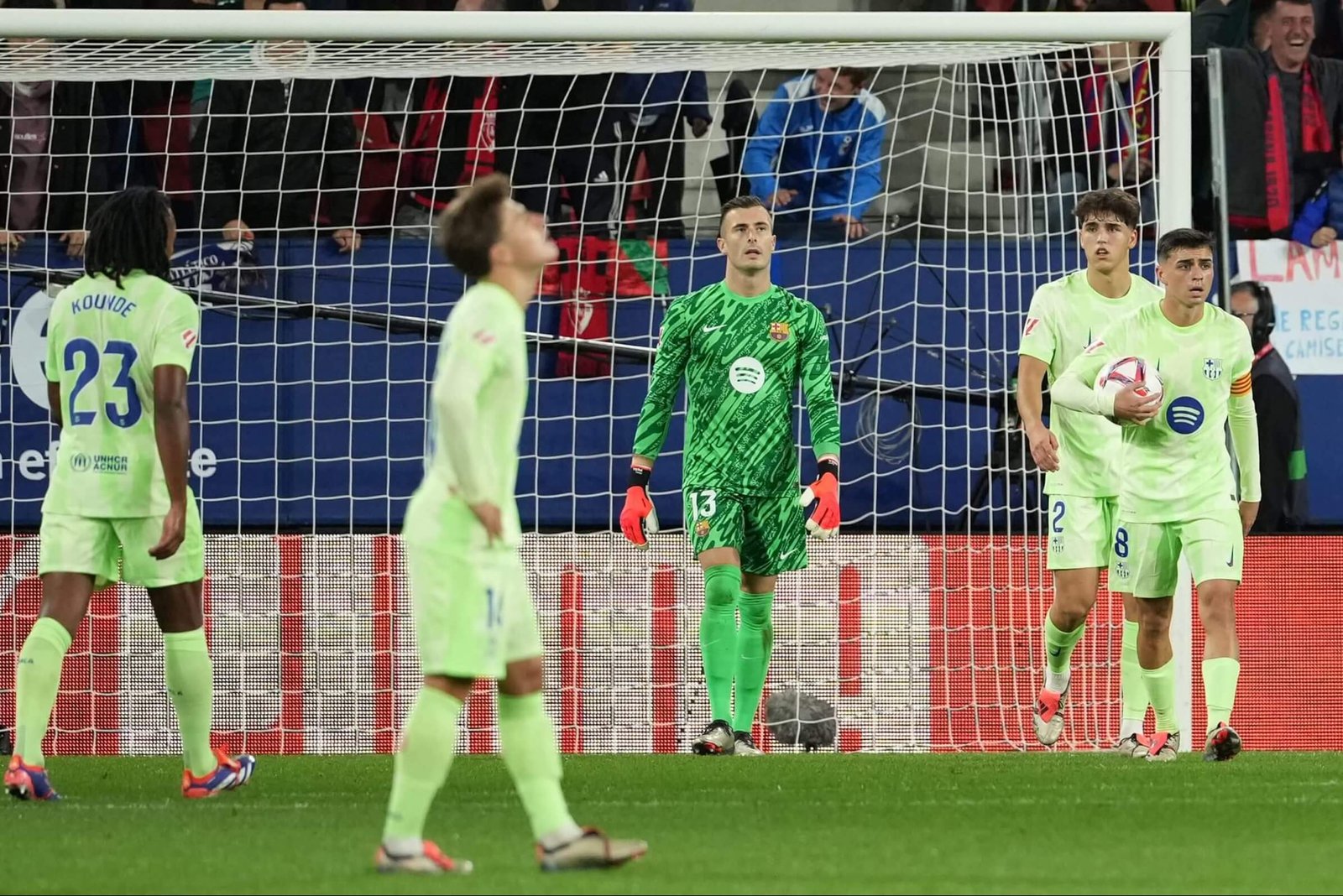
Inaki Pena has come under pressure as starting goalkeeper (Cesar Manso/AFP/ Getty Images)
“There are no reasons to change our goalkeeper,” he said at his press conference last Saturday. “Inaki (Pena) will start against Sevilla and Bayern. We won’t alternate goalkeepers. We have full faith in Inaki as he is training really (well).”
Flick’s camp is airtight with information. There are no leaks and, in a club surrounded by gossip, that has been appreciated by the board. He’s never looked for excuses — the lack of signings, the injury list, problems within matches — which was something that exasperated Laporta and his team with Xavi. His approach to press conferences, where he took the blame in situations such as Fermin Lopez’s injury with Spain or the defeat at Osasuna, has also had a positive impact in a dressing room of players that last season felt let down when the manager repeatedly blamed them for bad results.
Flick is just happy to be the Barca manager.
New discipline and trust in the squad
The day before they played at Alaves on October 6, Barcelona’s squad travelled to Vitoria as a team.
This is one of the new routines Flick has installed — a return to the old-school tradition of assembling the whole team in a hotel to then travel together to the match. But just before that Alaves game, something happened.
In the morning, Flick and the backroom staff set up their usual pre-match meeting at the hotel but Jules Kounde (below), one of the stars of the season so far, turned up five minutes late.
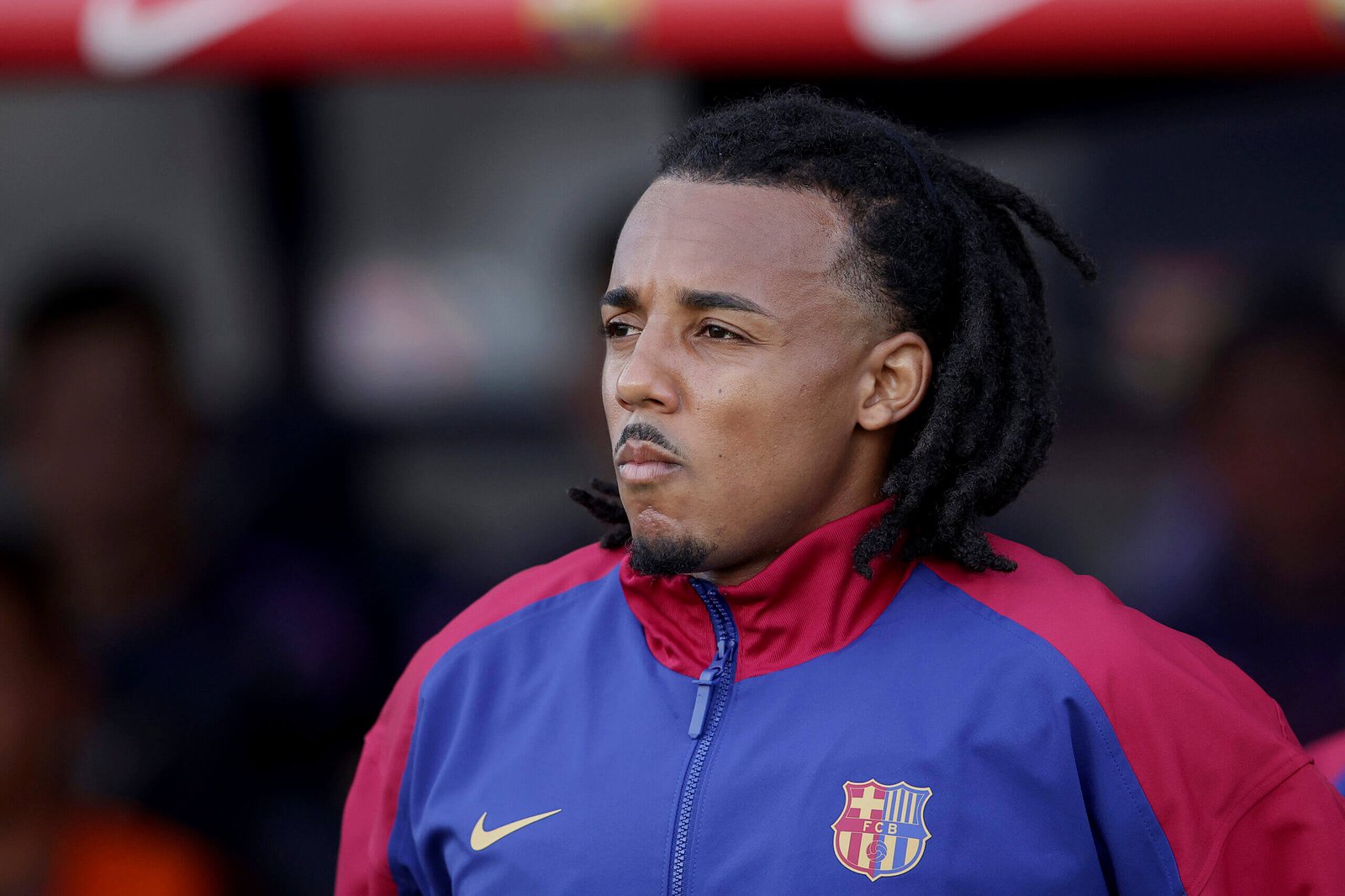
Jules Kounde (Rico Brouwer/Soccrates/Getty Images)
The 25-year-old was tipped to start the game, but Flick would not let his tardiness escape unpunished. Straight after the meeting, he told the team La Masia graduate Hector Fort would be starting ahead of Kounde. The French defender acknowledged the situation and accepted the decision. Dressing-room sources said the players were shocked by the strictness with the discipline and agreed it sent the right message to the squad.
“If you go over the line here, you just won’t play, the manager made it very clear. In the end, the sensation is that he is honest and a good guy,” a source said.
Barcelona won the game 3-0, which might have helped, with Kounde coming on in the 67th minute.
This improved discipline follows a long-standing wish from Deco. The sporting director was a driving force behind the reshaping of the physical training department in the squad and assembled a new team of coaches and physiotherapists to make sure training sessions were demanding and prepared the players better.
Flick arrived at the club with three assistant managers: Marcus Sorg, Toni Tapalovic and Heiko Westermann. As the season progressed, Flick was allowed to bring in two more members for his backroom staff — Stephan Nopp and Michael Hasemann — who worked with him during his stint for the German national team.
Flick knows how to take advice from the club and use it. The German’s ability to accept requests from the club’s hierarchy have helped him gain their trust. But he’s also shown a good balance, making his own decisions when necessary.
One of the best examples is Inigo Martinez (below). The 31-year-old centre-back seemed to be out of favour, was unregistered in La Liga for the upcoming season, and multiple senior figures believed his position was well-covered in the squad so Barca could afford to get rid of him.
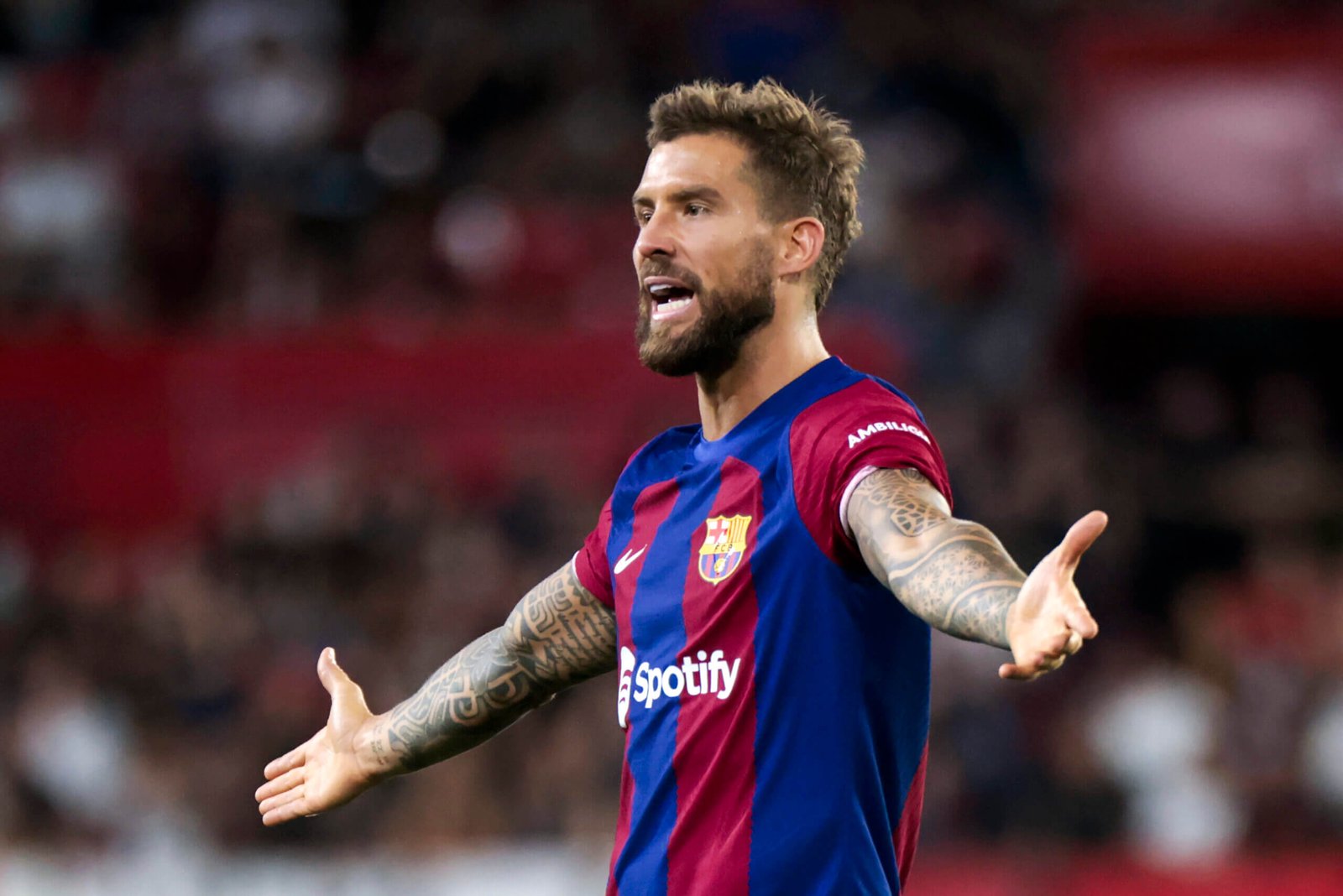
Inigo Martinez (Jose Luis Contreras/Dax Images/NurPhoto/Getty Images)
After two weeks of pre-season, Flick made it clear he wanted Martinez to stay. His leadership and experience was a good fit with the younger generation of players who see him as a role model. Barcelona accepted the decision, and he is now a fundamental part of the starting XI, forming an exceptional partnership with 17-year-old Pau Cubarsi.
Raphinha, another standout performer this season, was very clear on Flick’s influence on his game ahead of the Bayern match: “The reasons behind my good form are a bit mental but also tactical. I think it’s very important for me to have the confidence I feel from the manager, and then I knew I needed to adapt to other positions to play for this club.”
Flick has also been very open to working with the club’s youngsters. In pre-season, La Masia players who trained with the first team were impressed by his knowledge of their qualities. The manager has given them a chance to show what they could add to the team and had no fear of using them on the big stage.
Marc Casado and Marc Bernal — until a knee injury sidelined him — proved at the start of the season, alongside Pau Victor and Pablo Torre who also impressed, that they earned the right to stay in the team.
Is this going to work in the long term?
Well, that’s what everyone wishes in Barcelona. But big moments are looming, and as good as the start of the season has been, there are various risks the Catalans will need to be aware of.
One of them is tactical. Flick has refreshed Barcelona in a spectacular way, creating a new high-pressing system that has bested all their rivals so far. The Catalans are the La Liga team with the most completed tackles in the final third of the pitch (33) and average a record-breaking figure for offsides provoked per game on their opponents (6.5). Previously, the best numbers for Barcelona date back to 2010, when Pep Guardiola’s Barca ended the season averaging 3.74 per game.
But will this approach be careless when defending against the likes of Jamal Musiala, Vinicius Jr or Kylian Mbappe? Will Barcelona’s high press be structured enough against Europe’s biggest teams? We’ll find out soon.
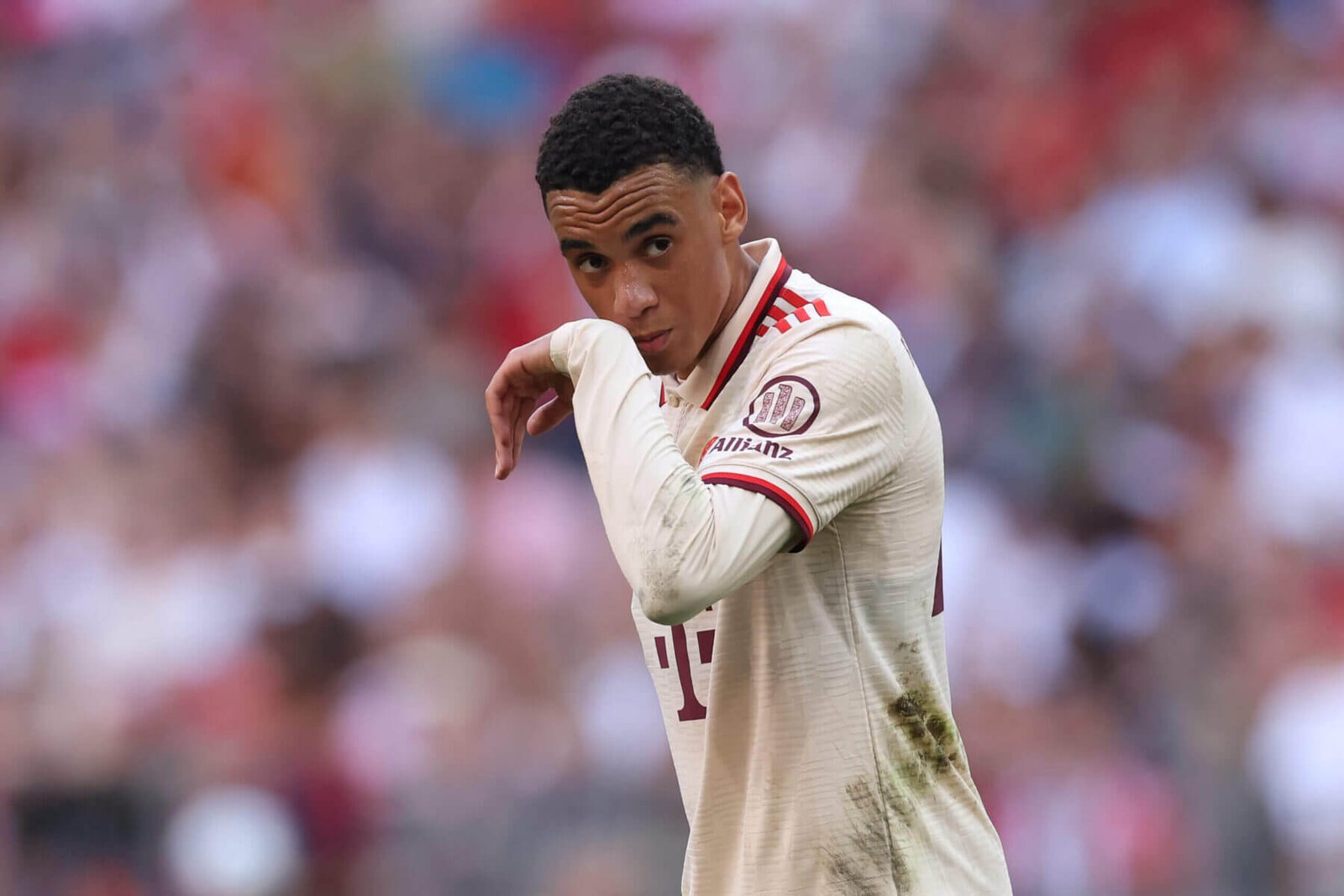
Musiala will be a threat for Bayern (Alexander Hassenstein/Getty Images)
Flick is yet to experience the full force of Barcelona’s atmosphere, with the remarkable start of the season barely leaving any room for criticism. This will be a long campaign, with ups and downs; how the German manager handles the tougher moments will prove pivotal.
Finally, there are issues within the squad. There are still many injuries, with Ronald Araujo, Andreas Christensen and Ferran Torres out for weeks. Frenkie de Jong is still getting adjusted, as are Gavi and Fermin. This also might be a squad that, given the problematic financial situation of the club, remains unbalanced in some departments. There are no clear replacements for the holding midfield position besides Marc Casado and De Jong, who are yet to make an impact under Flick. Alejandro Balde’s backup, Gerard Martin, might be a step below the required level, and Flick has been forced to trust La Masia product Sergi Dominguez as an emergency centre-back too.
There is no perfect world in football — especially in Barcelona where it does not take much to disturb the tranquility.
But Flick has so far managed a feat many believed was impossible not long ago. This is a strong enough reason for the Catalan fans to face two of the scariest sides in Europe believing they can be a real threat.
(Top image: Pedro Salado/Quality Sport Images, Eric Alonso; designed by Dan Goldfarb)
Read the full article here


